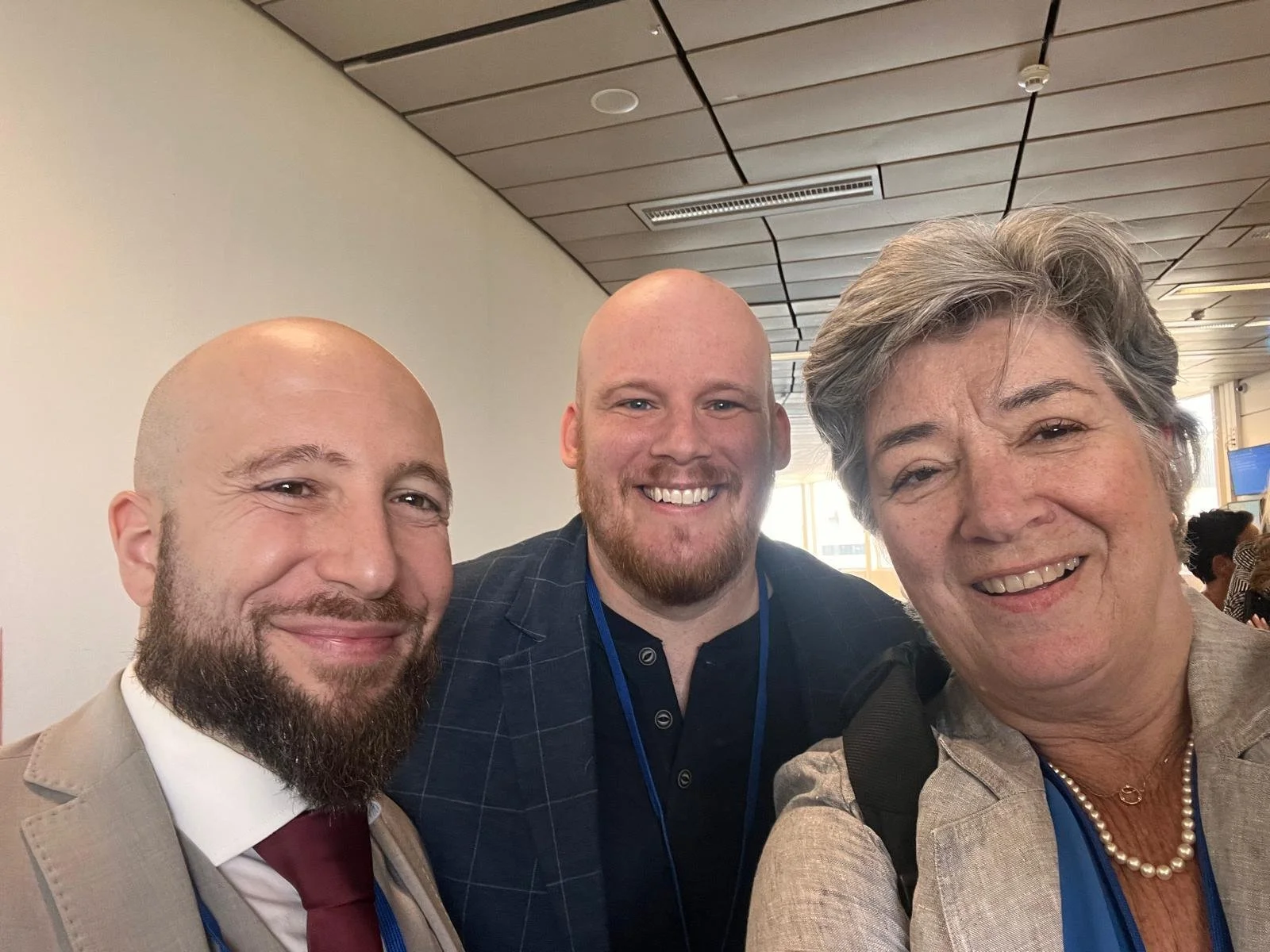UNCOPUOS Legal Subcommittee 2025 Updates
WRITTEN BY: SAM JARDINE, LUNAR LEDGER STAKEHOLDER LEAD
Mr. Jardine attended the UNCOPUOS Legal Sub Committee in Vienna in May 2025 and is sharing his key takeaways.
The UN’s ongoing liquidity crisis is placing significant strain on UNOOSA’s ability to fulfill its critical role in global space governance.
Severe budget shortfalls have forced the agency to limit its activities to core events such as COPUOS and its subcommittees, reduce staff travel, and scale back engagement across key multilateral forums. Despite these constraints, UNOOSA continues to provide essential coordination and support in an increasingly complex governance landscape, a point recognised publicly by all member state delegations. In a proactive step to adapt, the agency has launched a new trust fund- now open to non-state contributions- which offers a valuable opportunity for governments, industry, and civil society to support its mission. With growing concerns that underfunding may erode the multilateral system and empower alternative, less inclusive governance models, sustained political and financial backing for UNOOSA is more important than ever to ensure a balanced, globally representative approach to space governance.
Mr. Sam Jardine at UNCOPUOS LSC 2025
Despite the background of the liquidity crisis, significant progress was made.
A proposal was introduced to establish a Study Group on the Legal and Policy Aspects of Space Traffic Management (STM). This initiative, led by Germany and supported by a coalition of 21 countries- including Australia, Brazil, France, and South Africa- aims to compile a comprehensive research report over two years. The report would examine national and regional regulations, policies, best practices, and international legal frameworks related to space traffic, with the Outer Space Treaty serving as a foundational reference. While the proposal garnered significant support, a decision to establish the Study Group was deferred to the full COPUOS, scheduled for June 2025. This was because a few differing perspectives needed to be ironed out, particularly on its scope, including whether the group should focus on compiling and assessing existing national regulations and practices as opposed to attempting to create new norms and recommended practices.
The Working Group on Legal Aspects of Space Resource Activities made modest but important progress, with states broadly agreeing on the relevance of the Outer Space Treaty, the principles of non-appropriation and peaceful use, and the need for international cooperation, sustainability, and benefit-sharing. However, significant divergences remain over definitions of “space resources” and even key points, potentially like what constitutes “science”, the scope and structure of benefit-sharing mechanisms, particularly for emerging space power, the role of private actors, and appropriate models for licensing and oversight. Environmental protections and intergenerational equity were widely endorsed in principle, but practical implementation remains contested. In light of these discussions, the Chair, Steven Freeland (Australia) and Vice-Chair Ayman Mahmoud Mohamed Ahmed (Egypt) will prepare an updated draft of the recommended principles, due in July 2025, marking the next step in the Working Group’s five-year effort to build consensus on the legal framework for space resource activities.
The Action Team on Lunar Activities Consultation (ATLAC) made progress in advancing its mandate to facilitate recommendations and mechanisms that are needed to improve coordination and governance of lunar exploration and utilisation. Co-chaired by Pakistan and Romania, ATLAC held multiple formal and informal meetings focused on refining its draft workplan and identifying a flexible list of priority topics. Member States reached consensus on the need for a streamlined and adaptable approach, inclusive participation, especially from emerging space powers, and avoiding overlap with existing COPUOS Working Groups. Differences did emerge, however, regarding the scope of ATLAC’s discussions, the scope of its mandate, and the extent and ways that non-state actors may contribute, and how much weight different actors’ views should carry. Some delegations remain concerned about the risk of duplication and mandate clarity. To address these issues, the Co-Chairs scheduled further intersessional meetings in late May and June 2025, with a view to finalising ATLAC’s workplan for endorsement at the 68th session of COPUOS.
From left: Dr. Antonino Salmeri (Lunar Policy Platform), Mr. Samuel Jardine (Open Lunar Foundation and Lunar Policy Platform), Tanja Masson-Zwaan (International Institute of Air and Space Law, Leiden University and Open Lunar Foundation)


